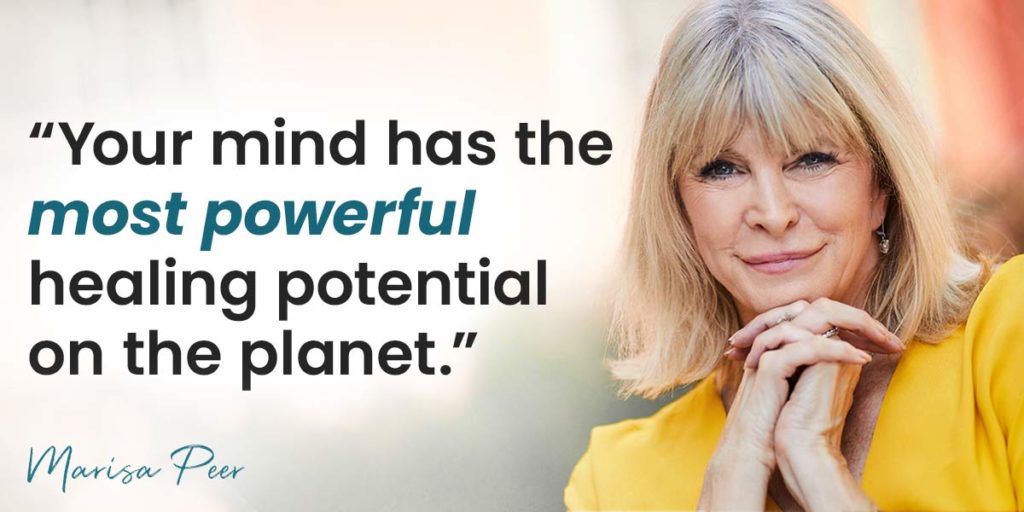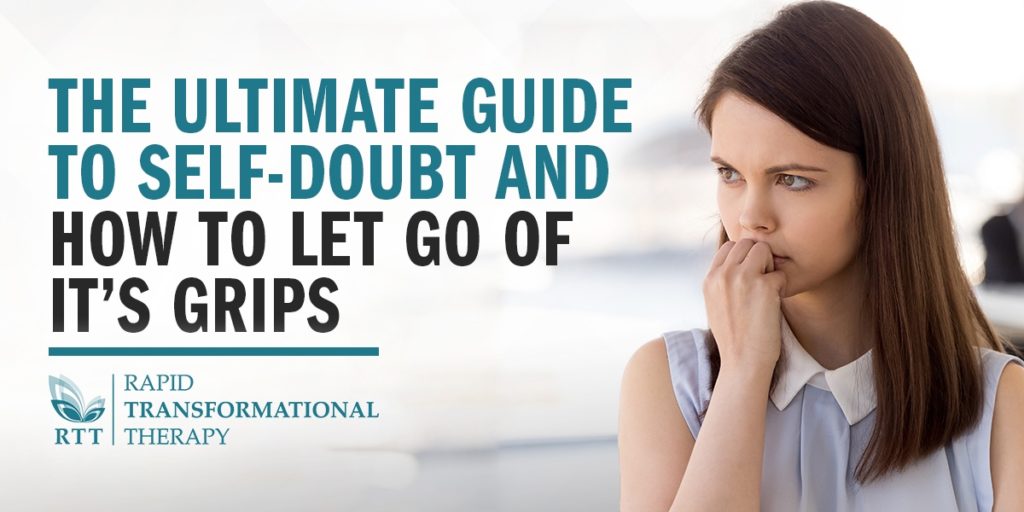Do you have an inner critic? An annoying little voice of self-doubt inside your head? It always seems to highlight your flaws and wipes out your confidence.
Everyone, at some point, gets themselves into a mental battle with their inner critic. When something great happens to you, it whispers in your ear, “You are not worthy.” When life gets hard, it makes you feel like everyone else is doing well. Of course, you are the only one struggling. It makes you question your capacity to make good decisions when things don’t go exactly as expected.
Experiencing self-doubt from time to time is normal. However, if you let it get out of control every time it visits you, it can limit you as a person. With that being said, all is not lost. You can—if you want to—learn how to talk back to your inner critic. Learning to do so is crucial. Otherwise, it can stop you from taking clear and confident action when new opportunities come your way.
By the end of this article, you will learn:
- What is self-doubt and where it comes from
- An easy method to spot it before it spirals out of control
- The three rules of the mind and how you can use them to let go of self-doubt
Let’s get started.
What Is Self-Doubt?

Self-doubt is an anxious feeling of uncertainty about an aspect of oneself.
It occurs when you lack confidence or feel incapable of doing something you need to do that is typically outside of your comfort zone.
Some people assume self-doubt to be a mental illness. However, it is actually a natural part of being human, and in some cases, it can be a good thing.
Healthy self-doubt: An example
When you venture off to explore something unfamiliar for the first time, your mind uses a small and healthy dose of self-doubt as a way to keep you safe. It assumes that your unfamiliarity with the task can pose a risk, so it discourages you from pursuing it.
In this scenario, self-doubt is a useful tool as it motivates you to gain more clarity before blindly jumping into something unfamiliar.
The problem happens when this inbuilt response gets out of control.
If left unchecked, self-doubt can become a limiting factor in your life. Moreover, it can hold you back from taking action and seizing opportunities.
It makes starting and finishing things harder than it needs to be.
Instead of keeping you safe, it chips away at your confidence and makes you overly question yourself.
Unhealthy self-doubt: An example
Imagine this:
After working hard at your job for many months, your efforts finally started to pay off.
You were assigned a new leadership position for an important project that could break or make your company’s bright future.
In the ideal world, you simply take it as a recognition of your exceptional performance and smoothly step into your new role.
Instead of doing that, your thoughts go into overdrive:
“What if I mess up?”
“I will look like a fool when they find out I don’t have what it takes.”
“What will people say?
“I just don’t think I’m smart enough to do this.”
This type of self-doubt is not healthy and counterproductive to helping you.
Let’s take a deeper look at the different forms of unhealthy self-doubt. This way you can better recognize and overcome it, should it occur.
How To Spot Unhealthy Self-Doubt

Think of unhealthy self-doubt as a parasite. In order to survive, it seeks nourishment by feeding off its host’s self-esteem and confidence.
It shows itself in the following forms:
The self-fulfilling prophecy
“I can’t do it”—this attitude can become a self-fulfilling prophecy. If you do not believe something can be done, why would you put the effort to do it in the first place?
If you don’t put in the effort required, you are less likely to get the result you want. As a result, you affirm your initial thought: “I can’t do it.”
Self-sabotage
“I do not deserve this”—self-sabotage comes from fear of failure. If you are afraid you won’t pass the test, you might be tempted not to study at all. Therefore, if you fail, you can blame it on not studying.
In this case, you can shift the blame from yourself to some external circumstance. For example, it was not your capabilities that failed, it was the situation.
The imposter syndrome
“Who am I to do this”—the strong feeling of inadequacy comes together with this type of mental dialogue.
You might be afraid of being discovered as a fraud. Because in your mind, your achievements are due to pure luck rather than personal accomplishments. This may happen even if you already demonstrated you are more than adequate to get the job done.
Feeling of unworthiness
“It is not good enough”—in this case, you habitually deny yourself the sense of achievement. You lack self-kindness. Therefore you believe that no matter how great your accomplishments are, they are never good enough. As a result, you experience harsh self-judgment that keeps you permanently stuck in a spiral of self-doubt.
The way you talk to yourself is critical as it creates neural pathways in your brain.
If you allow the voice of self-doubt to repeatedly undermine your achievements by telling you “you cannot do it,” “you are no good,” “you do not deserve this,” those thoughts will become your default state of mind.
Over time those thoughts will form a self-perpetuating feedback loop. Consequently, it will keep you stuck in the same situation finding it more difficult to break out of it as time goes by.
Where Does Self-Doubt Come From?

There are a number of reasons behind your self-doubt. for example, some find their roots in traumatic past experiences. Others, on the other hand, can be directly tied to the inner dialogue you have with yourself.
Lets elaborate on each type so you can better understand where self-doubt comes from.
Negative past experiences
Going through difficult situations is a normal part of life. However, the way we interpret them will determine how we deal with them.
This can also include possible negative experiences you might have been exposed to as a child.
For example, If you were raised by parents that were overly critical, chances are you grew up with a continual nagging of self-doubt.
Those experiences might have left you scarred. Therefore, today you need to learn how to cope with them without hanging on to the pain they caused.
Comparing yourself to others
In the age of social media, comparing yourself to other people is almost unavoidable.
As you scroll through your social media accounts, you end up seeing other people’s unrealistic and “highly curated” highlight reel of their best moments.
The comparison you make in your mind may end up making you feel somewhat inadequate and plant a seed of self-doubt.
All of those different reasons make it seem like the problem of self-doubt is complex and can take forever to fix.
In reality, it is not as hard as you think, and here is why:
There is only one common root for all those reasons we mentioned earlier.
It is this heavy feeling you get inside of “not being enough.”
Marisa Peer, a world-renowned therapist with over three decades of experience, has helped thousands of people, including CEOs, rock stars, and Olympic athletes, to release their fears and phobias.
Having worked with many clients, she discovered that the root of most people’s issues—phobias, insecurity, anxiety, fear, and many forms of addiction—stems from the need to fill the inner emptiness of not feeling enough.
The inner emptiness was a chief reason why her clients would second guess their capabilities. Moreover, they self-sabotage their efforts in critical moments.
If they could just get rid of that one persistent feeling—not being enough—the wall of self-doubt would start to collapse like a house of cards.
Before you can permanently remove self-doubt from your life, you need to understand how it works.
The Mechanics of Self-Doubt

When we experience an overwhelming sense of self-doubt, we tend to lose touch with the most basic thing we should be in touch with, ourselves and our minds.
According to Marisa, “We end up doing everything backward trying to control our events when we must first address the root cause, our thoughts.”
Marisa is a big fan of simple and practical principles that anyone can easily apply to their life to get tangible positive outcomes.
One powerful principle that Marisa helped many of her clients adopt is:
Your thoughts control your feelings. Your feelings control your actions. And your actions control your outcomes.
Here is how it works:
You have a thought: “I can’t do it.”
This thought will cause you to feel sad, angry, bitter, helpless, or even hopeless.
Consequently, this type of thinking evokes negative feelings about yourself. As a result, your ability to make sound and proactive decisions is hindered.
To put it simply, it puts fear in the driver’s seat of your behaviors and actions. This makes you less likely to take risks and reinforces the original thought of “I can’t do it.”
Now you might be wondering,
“How do I get out of this vicious cycle of self-doubt?”
Marisa teaches her clients three simple yet effective rules of the mind that can help anyone take charge and completely let go of self-doubt.
3 Simple Principles for Overcoming Self-Doubt

Principle #1: Make the unfamiliar familiar and the familiar unfamiliar
Your mind loves what is familiar to you.
Even when the thing that is familiar is not serving you well, your mind thinks, “At least I know this well.”
If your mind is accustomed to “negative dialogue,” you will have an unconscious preference for that type of thinking.
People whose inner critic is out of control are familiar with the constant nagging feeling of “not being enough.”
What you want to do is make the feeling of not being enough unfamiliar. At the same time, make the feeling of being enough familiar.
Here is how to do it:
Start by using this simple yet extremely powerful affirmation “I Am Enough” in your daily practice.
This simple phrase can change your life.
When you say and repeat “I Am Enough” on a daily basis, your brain will start to believe it. Gradually, the phrase will sink in, and your mind will accept it as the truth.
This simple affirmation will help you feel more empowered and confident.
Choose a powerful affirmation from the list below and repeat it to yourself every day:
- I am confident
- Today I am courageous
- I am significant
- I am capable of dealing with anything
Saying these affirmations out loud may seem bizarre. Some of Marisa’s clients were skeptical too, and today they swear by it.
Try to incorporate this as a daily routine for as little as five minutes for at least 21 days or more. You will see your self-doubt gradually subside.
Practicing affirmations by yourself may sound hard in the beginning. You can try to incorporate audio that can guide you.
Marisa’s guided hypnosis audio course can be a great way for you to start your practice. It can help you rewire and reprogram your mind and uncover your inner confidence and self-esteem.
Principle #2: Tell your mind what you want it to do for you

Your mind does what it truly thinks you want.
If you do not communicate clearly what you want, your mind will get confused and work against you.
In the case of self-doubt, your mind is trying to protect you from potentially dangerous situations. In reality, this could end up hurting you.
Instead of letting your insecurities get the best of you, be mindful of how you communicate with your mind.
Here is how to do it:
Words you tell your mind are like blueprints. Give it direct, crystal clear commands about how you want to feel about yourself in any situation.
For example, as you are working on a tough project and you feel your doubts creeping in, tell your mind:
“I’m choosing to do this,” “I love this,” “I am thrilled to be working on this project.”
By doing this over time, your mind will have no choice but to start agreeing with the new attitude you are trying to adapt to.
Principle #3: Be proactive not reactive
The way you feel about yourself and your situation is the result of two things: The pictures you make in your head and the words you say to yourself.
If you are like many of us, as a child you may have often heard phrases such as:.
“What’s wrong with you?”
“You’ll never be any different.”
“I’m disappointed in you.”
Parents use those words with good intentions. However, they are usually not aware of how those words could have a negative effect on their child’s mental dialogue.
With enough repetition, those messages embed themselves into a person’s self-dialogue. With time, they become a part of how they talk to themselves.
The good news is that it is completely up to you to change it whenever you want.
Here is how to do it:
Whatever situation you find yourself in, you always have the freedom to choose your response.
There will still be times when you feel like self-doubt is creeping in. Now you know you can cheat your brain into feeling good by choosing words and pictures in your head deliberately.
For example, imagine you are driving on a busy highway, and a driver cuts you off. You may feel tempted to lash out and think of all sorts of negative thoughts. On the other hand, you could proactively choose to remain calm. You can do that by taking a deep breath and calming your preconditioned inner dialogue.
Start by telling yourself, “I am calm,” “I am peaceful.”
This will help you realize that maybe the driver had a good reason to cut you off. So there is no point in losing your cool.
The premise is to keep the words you say and pictures you make in your head in check and in a positive frame.
Let Go of Self-Doubt—A Word From Marisa Peer

Self-doubt and feeling insecure is not something you have to live with.
When you understand how to work with your mind, you will gain the ability to reclaim the inner confidence you were born with.
Here is your next step:
You may think to yourself,
“This is really useful information. But what is the easiest way to put this information to good use and remove self-doubt right when it pops up?”
Well, we have something special for you.
Marisa noticed that the successful people she worked with all had a common mindset: Their mind was their friend.
Their inner dialogue always cheered them on, gave them constructive criticism to do things better, and was always proactively positive. Which is the reason behind Marisa’s extraordinary self-hypnosis RTT audio course named “Installing The Cheerleader.”
By listening to this hypnotic audio course, you too can begin the process of reactivating your inner cheerleader today.
Remember, it is entirely possible to rid yourself of self-doubt and step into the life and type of person you want. Book a session with a certified RTT therapist and uncover your hidden full potential.
You can also consider participating in Marisa’s 21-Day Challenge.
The 21-Day unstoppable Confidence Challenge
Self-doubt can be rooted in a lack of confidence, in either yourself in general or your ability to get through day-to-day tasks. These beliefs are self-sabotaging, as there is no way to move beyond them while you still believe them. However, undoing years of negative self-talk in order to boost your confidence and reclaim your self-belief, can be extremely difficult if you are going it alone.
That’s why Marisa Peer created her 21-Day Unstoppable Confidence Challenge. Through a combination of daily trainings, audios and meditations, as well as a supportive network of like-minded individuals also participating in the challenge, you will learn how to leave your self-doubt in the past and welcome in a new, confident you.
If you are interested, make sure to click the banner below to find out more and sign-up today.





